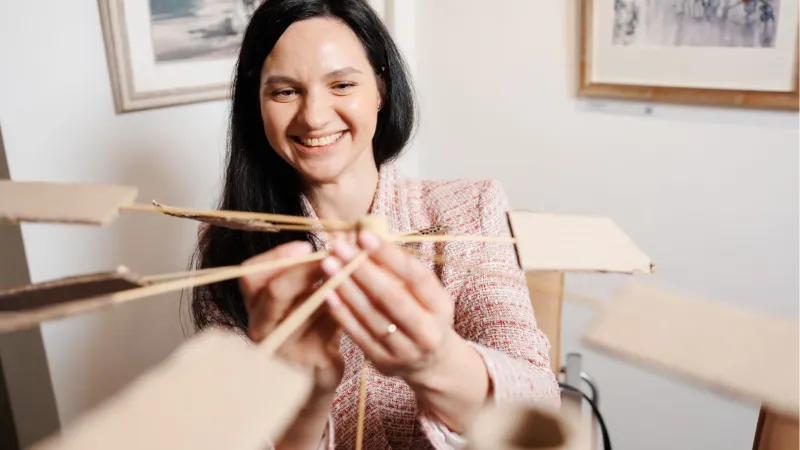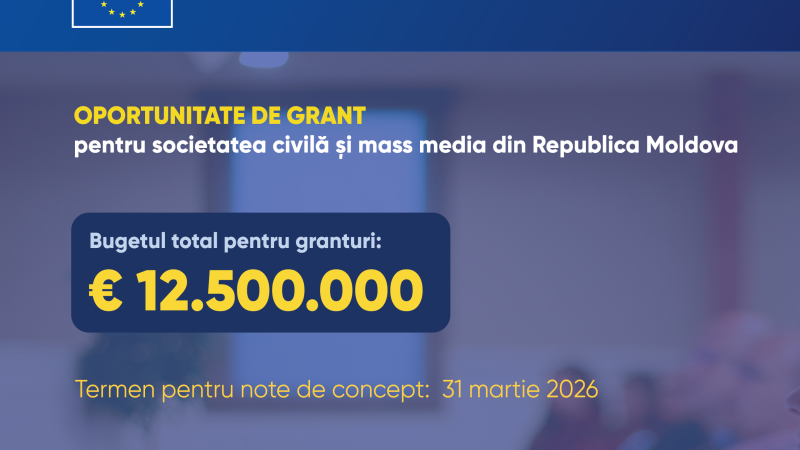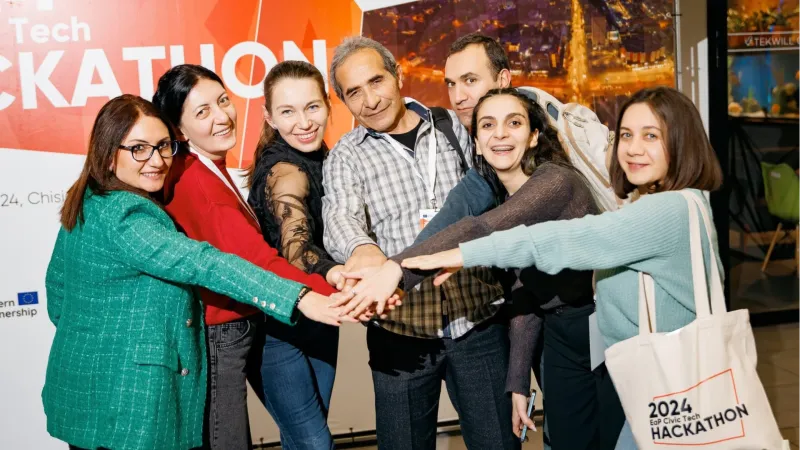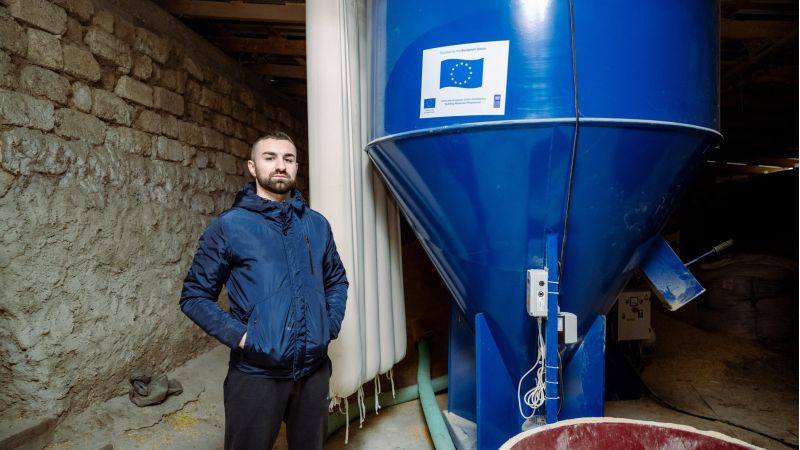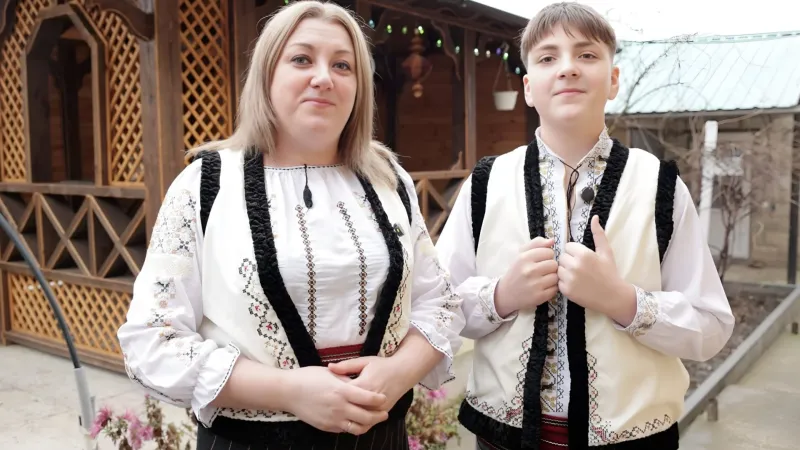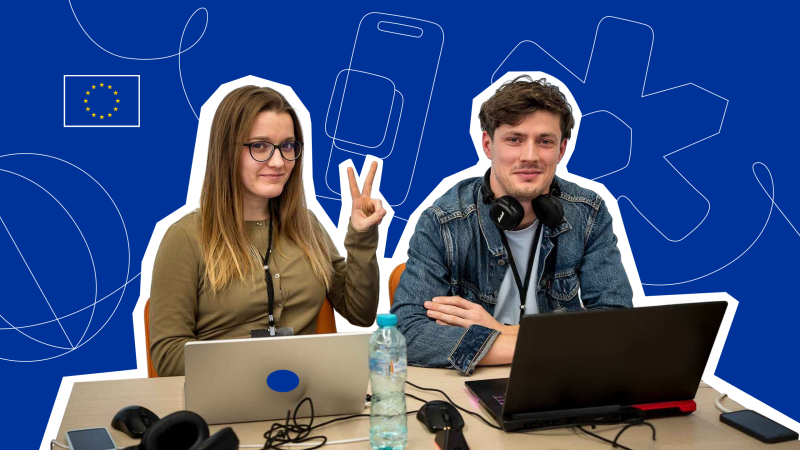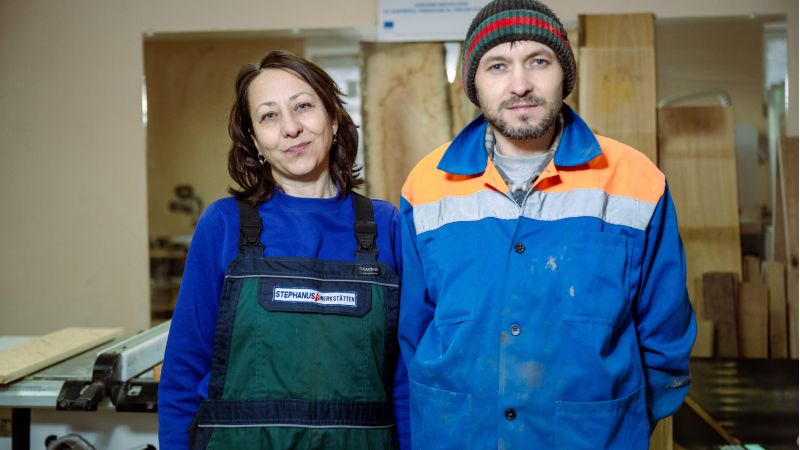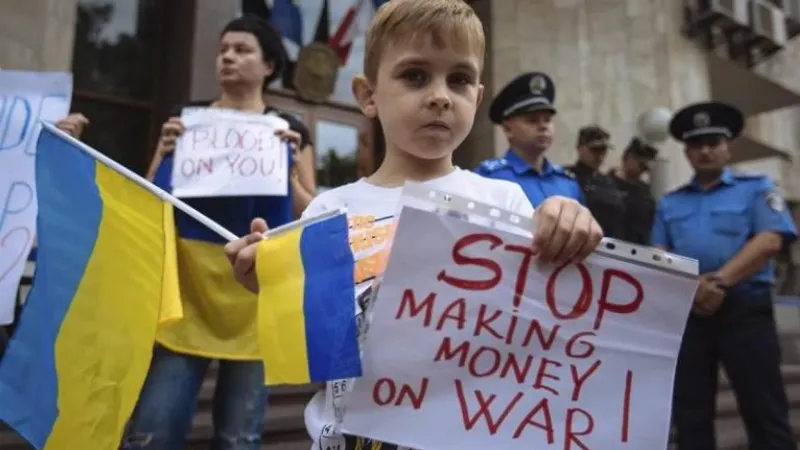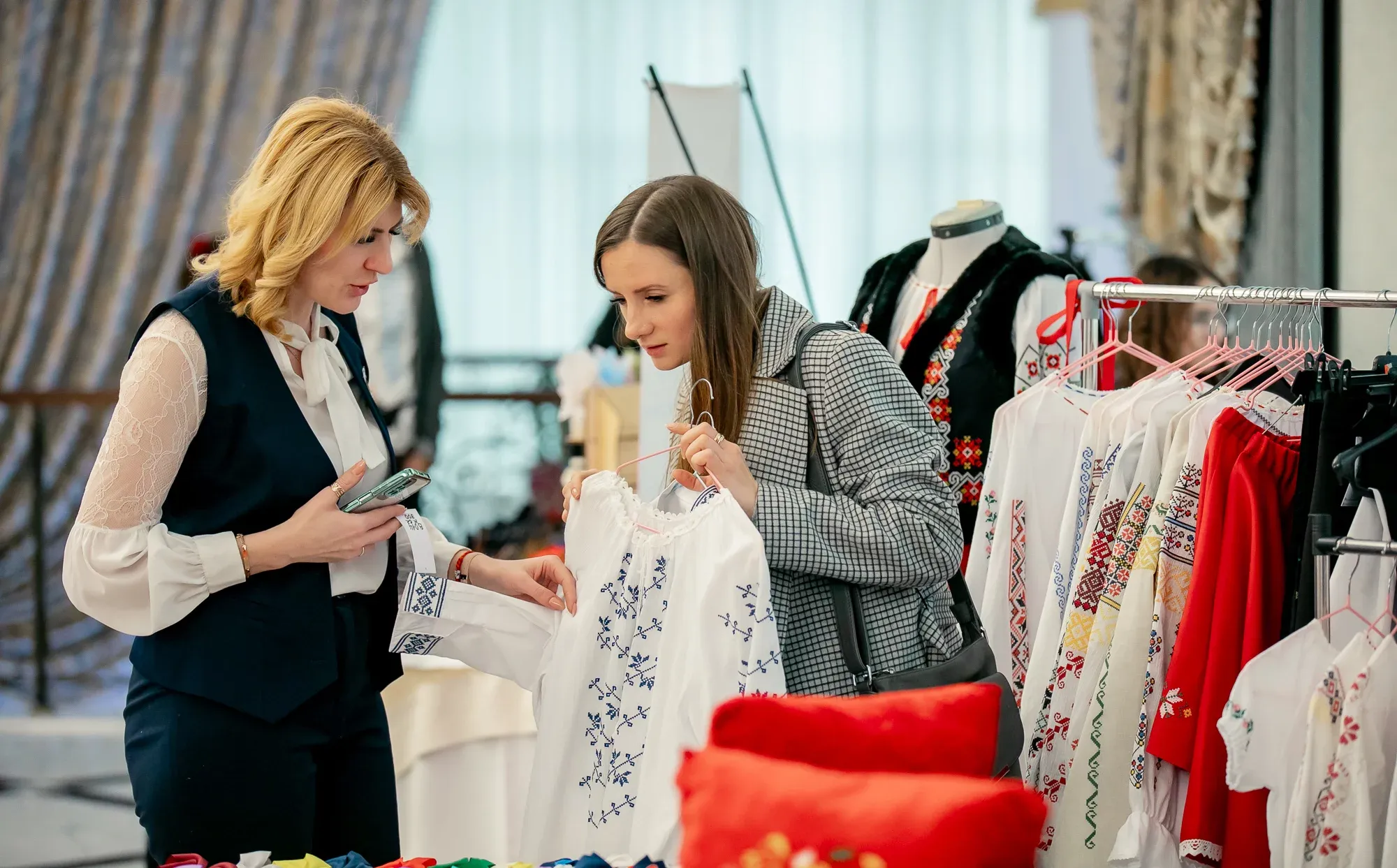
Stimularea educației antreprenoriale în Republica Moldova pentru a scoate tinerii în evidență
La întrebarea „Vrei să pleci din țară?”, aproape toți elevii unei școli din Telenești sau Rezina ar ridica mâna. Migrația apare adesea pentru tinerii din Republica Moldova ca o soluție imediată pentru problemele lor economice, în timp ce înființarea unei afaceri proprii în țara de origine pare de neatins din mai multe motive, cum ar fi lipsa de fonduri pentru înființare, dificultățile legate de înregistrarea afacerii, povara fiscală și așa mai departe. Asociația Umanitară „Filantropia Creștină” consideră că consolidarea educației antreprenoriale în zonele urbane mici poate contribui la păstrarea tinerilor în Moldova. Cu sprijinul UE, asociația reușește să încurajeze tinerii antreprenori din raioanele Telenești și Rezina.
Marina, în vârstă de 33 de ani, provine din mica comună Ratuș din raionul Telenești. A petrecut mai mulți ani în Marea Britanie, conducând propria afacere de curățenie, dar după izbucnirea COVID a fost nevoită să se întoarcă în Republica Moldova. Aici Marina a trebuit să își refacă viața de la zero, încercând să câștige bani pentru ea și pentru fiul ei de șapte ani. „Treceam printr-o perioadă de stagnare. Nu aveam suficienți bani pentru a-mi întreține copilul”, își amintește Marina. „Un asistent social din satul meu m-a contactat, spunându-mi că Asociația Umanitară «Filantropia Creștină» caută tineri pentru programul lor de educație antreprenorială «Startup-EDU School». Am fost de acord. Eram deschisă față de orice oportunitate de muncă la acel moment”.
Petru, în vârstă de 21 de ani, a plecat din Telenești, orașul său natal, la Chișinău, pentru a urma cursuri de frizer și, în cele din urmă, pentru a-și găsi un loc de muncă acolo. Petru nu credea că se va întoarce acasă, dar când a găsit informații despre programul educațional al ONG-ului la primăria din orașul său natal, a decis – la fel ca și Marina – să profite de această oportunitate și să își deschidă propria afacere.
„În mai bine de 10 ani de activitate, «Filantropia Creștină» a contribuit la integrarea pe piața muncii a peste 500 de tineri din raioanele Rezina și Telenești”, spune Sergiu Aga, director executiv. „În ultimii ani, atenția noastră s-a concentrat în special pe NEETs – tinerii care nu sunt angajați în muncă, educație sau formare profesională.”
NEETs reprezintă o proporție considerabilă din numărul total de tineri din Republica Moldova – aproximativ 28%. Cu toate acestea, segmentul dat este adesea în umbră, chiar și pentru administrația publică centrală. Adesea, autoritățile locale nu sunt conștiente de existența persoanelor NEETs, de nevoile lor sau de acțiunile care trebuie întreprinse pentru a le integra în comunități, pentru a le angaja sau pentru a crea condiții de auto-angajare. Și aici organizațiile societății civile pot face o schimbare.
În anul 2021, „Filantropia Creștină” a dezvoltat o idee de educație antreprenorială pentru NEETs din raioanele Rezina și Telenești, ce s-a transformat într-un proiect care a primit sprijin financiar din partea UE prin intermediul Fundației Est-Europene. Obiectivul principal a fost foarte concret: implicarea tinerilor motivați în programul de educație antreprenorială dezvoltat de asociație, selectând zece beneficiari pe care să-i sprijine cu mini-granturi pentru afacerile lor.
Proiectul a fost dezvoltat în colaborare cu autoritățile locale, cu departamentul de asistență socială și cu școlile profesionale locale. „Filantropia Creștină” a ajuns la sute de tineri din zonă. Primul grup de activități – o serie de ateliere informative și consultative, discuții și grupuri de discuții – a avut un dublu scop. Pe de o parte, au urmărit să sprijine NEETs în dezvoltarea lor profesională, sporindu-le încrederea în sine, motivându-i și consolidând abilitățile lor de angajare. Pe de altă parte, atelierele au ajutat la preselectarea unui grup de bază, format din 38 de tineri foarte motivați care să facă parte din programul de antreprenoriat educațional.
„Școala StartupEdu” a fost concepută de mine ca un program modular, format din cinci module cuprinzătoare – un fel de ABC al tinerilor antreprenori”, explică formatoarea Veronica Mirzac. „Participanții urmau să parcurgă pas cu pas modulele, astfel încât, la finalul programului, să aibă toate informațiile teoretice necesare despre cum să pornească o afacere, care este capitalul inițial, care sunt sursele alternative de finanțare, cum se stabilesc prețurile pentru produse sau servicii, care este fluxul de numerar și așa mai departe.”
La finalizarea programului, participanții au fost asistați – prin mentorat și consultanță – în elaborarea unor planuri de afaceri bazate pe ideile lor de activitate. Planurile de afaceri elaborate au participat apoi la concursul de idei de afaceri. În final, cele mai bune idei au fost premiate cu mini-granturi pentru a le pune în aplicare.
Marina și Petru au fost cei doi dintre unsprezece câștigători. Marina a primit 1.250 de euro pentru a lansa o afacere în domeniul artizanatului artistic și pentru a crea obiecte decorative pentru nunți, zile de naștere și alte evenimente. În prezent, ea își dezvoltă afacerea cu jumătate de normă, lucrând de acasă, dar intenționează să își deschidă propriul atelier. Petru și-a deschis propria frizerie în Telenești – prima din oraș! El instruiește alți tineri în în meseria de frizer pentru a-i angaja în cele din urmă.
„Dacă tinerii vor să înceapă o afacere, trebuie să creadă în ei înșiși, să fie perseverenți, să fie curajoși! Pe tot parcursul proiectului, i-am încurajat pe participanții noștri să meargă mai departe, i-am motivat să nu renunțe”, afirmă formatorul. „De exemplu, vizita noastră de studiu în România le-a oferit șansa de a vorbi cu antreprenorii de peste Prut, nu doar despre succes, ci și despre obstacole. Înțelegerea faptului că provocările legate de antreprenoriat nu sunt unice în Republica Moldova a fost o motivație puternică pentru a-și urma visele.”
Educația antreprenorială și experiența practică obținută de tineri îi face pe aceștia eligibili pentru noi oportunități de finanțare, de exemplu, în cadrul ODA, IFAD, AIPA și alte fonduri naționale și internaționale de sprijin a antreprenoriatului în Republica Moldova, ceea ce înseamnă un sprijin semnificativ pentru afacerile lor, dar și un viitor mai luminos în țara lor de origine.
Această inițiativă, întitulată „INNOVA BUSSINES – creștem pentru a împărtăși”, a fost implementată de Asociația Umanitară „Filantropia Creștină” și finanțată de UE prin intermediul Fundației Est-Europene în cadrul proiectului de grant, întitulat „Societatea civilă contribuie la dezvoltarea economică incluzivă și durabilă a țării.”
Autor: Volha Prokharava
